 Evaluation and impact assessment | Futures thinking | Learning and development | Strategy development
Evaluation and impact assessment | Futures thinking | Learning and development | Strategy development
Evaluating and embedding social values in procurement at East London NHS Foundation Trust
This report presents emerging findings from the early development stages of a social value approach to procurement by East London NHS Foundation Trust (ELFT). These findings provide insights for other organisations beginning to explore how to use procurement to contribute to improving health and…
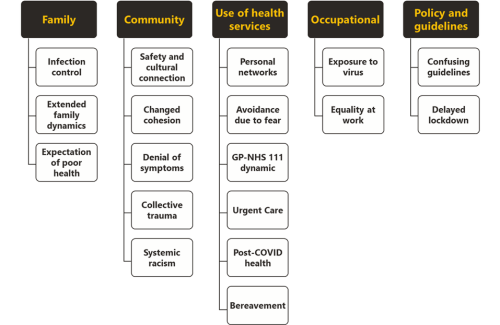 Strategy Unit information
Strategy Unit information
We don’t just need to hear ‘you are more affected’ - what’s the action?
The experience of minority ethnic people symptomatic for COVID-19 in the first UK wave of the pandemic.
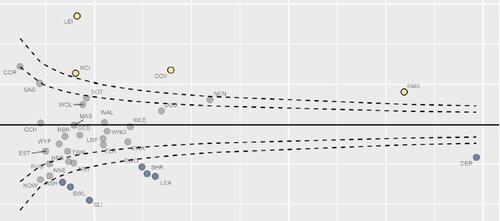 Elective care | Finance and payments | Inequalities
Elective care | Finance and payments | Inequalities
Equity and Cost Growth in Specialised Services
NHS specialised services provide care for people with complex or rare medical conditions. Treatments for these conditions are often expensive: While specialised services support a small proportion of the population, approximately one-sixth of the total NHS budget - over £19 billon - was allocated…
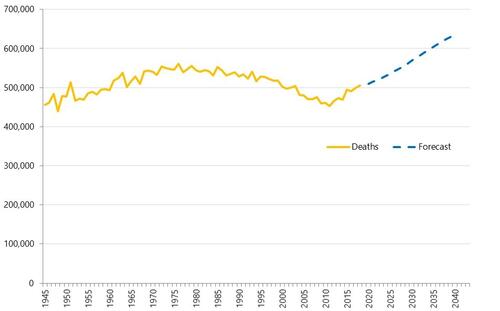 End of life | Inequalities
End of life | Inequalities
Health service use in the last two years of life
Health and care services get just one opportunity to support people at the end of their life. When this support is compassionate and appropriate, unnecessary suffering can be avoided and grieving can be eased. When this is not the case, harm and distress can result. The difference in these…
Outcomes based commissioning: A framework for local decision making
This local decision-making framework aims to empower systems as they look to design new contracting approaches aimed at improving outcomes.
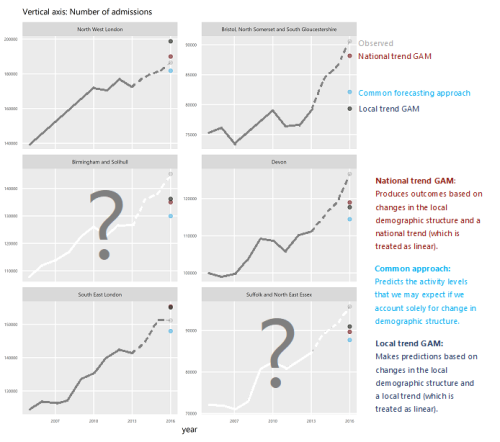 Elective care | Emergency care | Finance and payments | Policy | Primary, community and social care services
Elective care | Emergency care | Finance and payments | Policy | Primary, community and social care services
How will we know if Integrated Care Systems reduce demand for urgent care?
The implications of a blended payment system are far reaching: Decisions about planned activity levels will determine the total funding envelope for urgent care within a system and will influence the behaviour of healthcare providers and the services they deliver to patients.
 End of life
End of life
The Status of Electronic Palliative Care Coordination Systems in the West Midlands
Commissioned by NHS England, this report describes the state of electronic palliative care coordination systems in the West Midlands. It draws on a review of the literature, interviews with local NHS staff and responses to information requests. As people approach the end of their lives…
Risk and Reward Sharing for NHS Integrated Care Systems
Risk and reward sharing is a simple and attractive concept, offering a commissioner the opportunity to co-opt and incentivise a provider to moderate growth in healthcare demand by sharing in the savings or cost over-runs. The Centers for Medicare and Medicaid Services (CMS), a US government…
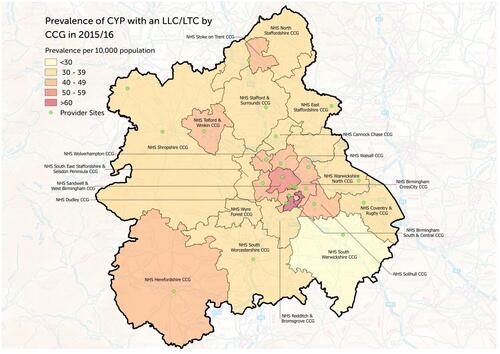 End of life | Inequalities
End of life | Inequalities
Palliative and End of Life Care Report for Children and Young People
Commissioned by NHS England, this report describes the the characteristics and levels of resource required by children and young people (CYP) (0-25 years) with life limiting conditions and/or life threatening conditions (LLC). The scope of this report does not attempt to explain or address the…
Identifying Potential QIPP Opportunities - Dudley Example
Given the pressures within the NHS, being able to identify opportunities for efficiencies and improvements is vital to inform commissioning intentions. This report is an example of analytical work which to support commissioners. The objective of this report is to provide information to…
 End of life
End of life
Palliative and End of Life Care in the West Midlands
Commissioned by NHS England, this report describes the status and context of palliative and end of life care services in the six Sustainability and Transformation Partnerships in the West Midlands. The report contains data on trends and forecast numbers of deaths, place of death, palliative…
 End of life
End of life
Changes in Dementia Incidence, Prevalence, Severity and Mortality
Dementia is a key priority for NHS England and is estimated to affect around 676,000 people in the country. Our analysis is intended to help understand the need for future dementia diagnosis and treatment services in a specific area and to help commissioners to identify and…